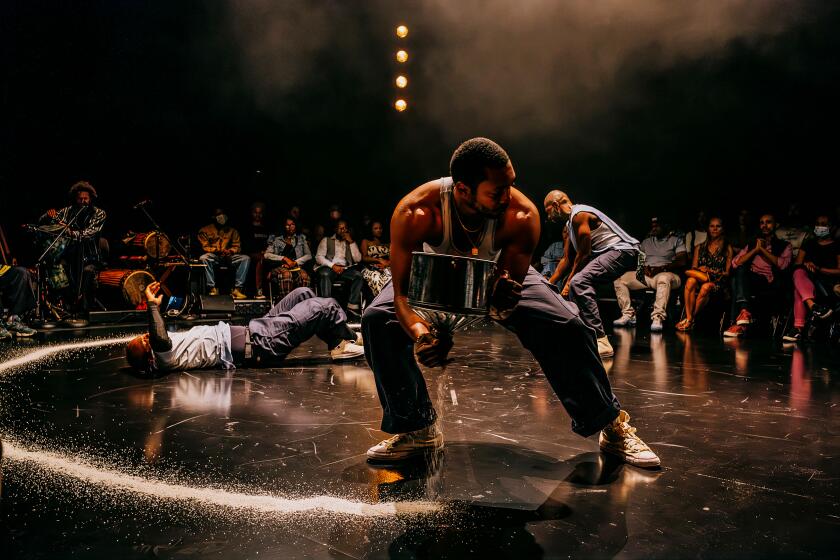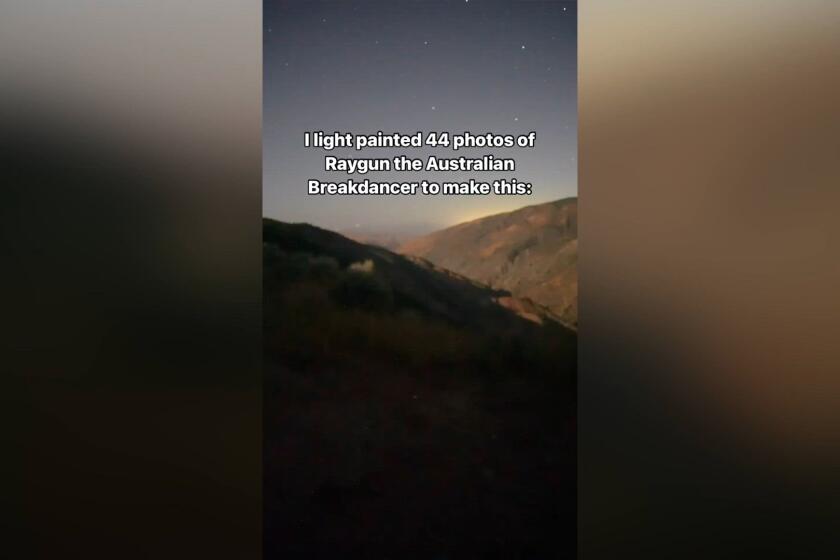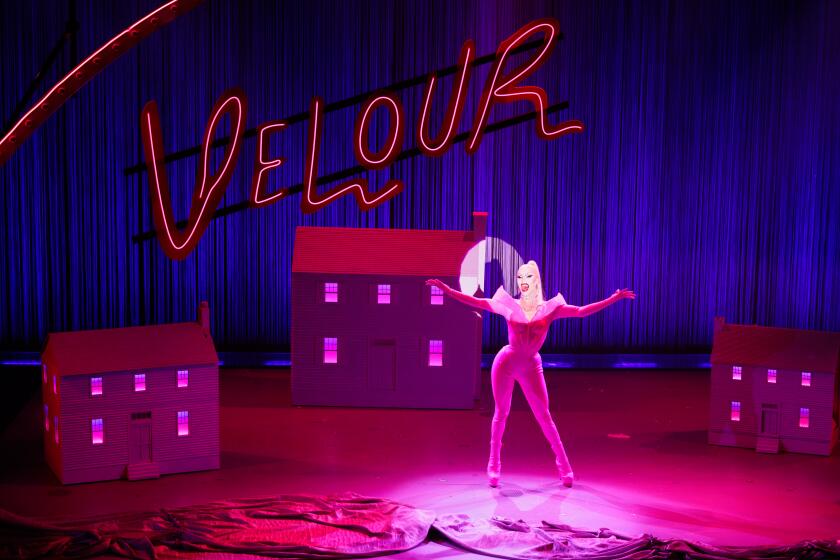The power of Handel
For all the excitement the Handel revival has generated over the last couple of decades, most of the composer’s 42 operas remain obscure. “Radamisto,” given a thrillingly blunt concert performance by Musica Angelica at UCLA’s Schoenberg Hall on Sunday afternoon, is No. 12 and thus relatively early.
Still, commentators who have taken the lifetime needed to absorb Handel’s remarkable oeuvre point to “Radamisto,” written in 1720 and several times significantly revised, as his first major dramatic accomplishment. Flesh and blood finally hold the stage without need of magic or the gods.
The plot -- loosely based on an account by the ancient Roman historian Tacitus -- is unbelievable. But the passions are not. A bully Armenian king, Tiridate, covets the wife of the king of Thrace’s son and invades Thrace to get her. Complications abound. Radamisto is the husband of Zenobia, the object of Tiridate’s affection, and is also the brother of Polissena, Tiridate’s long-suffering wife.
At the center of the opera, Zenobia persuades Radamisto to kill her rather than allow her to fall into Tiridate’s clutches. Radamisto halfheartedly stabs his wife, and she tries to finish the job by jumping into a river, but she too bungles. Eventually, Tiridate’s sycophantic supporters turn against the king. Everyone persuades a murderous brute to reexamine his ways. He does, and all live happily ever after.
Though a rarity, “Radamisto” has strong West Coast connections. The two important recordings of the opera are by Nicholas McGegan, music director of the Bay Area’s Philharmonia Baroque, and Alan Curtis, a former musicologist at UC Berkeley (although both recordings come from Europe). Musica Angelica’s weekend performances (the opera was also given Saturday night at the Colburn School’s Zipper Concert Hall) were principally European.
Handelians
The local period-instrument ensemble’s music director, Martin Haselbock, has in recent years become one of Europe’s leading Handelians, and “Radamisto” is among his specialties. He conducted a staged production of the opera that toured Europe. The members of the Los Angeles cast came mostly from that production and were able to perform without scores. Two small roles were assumed by local singers.
The conventional wisdom is that the second version of “Radamisto” is the best because in it Handel adapted the title role, originally for a mezzo-soprano, for Senesino, the leading countertenor of his day. New arias were written. But other wonderful ones were left out. Curtis’ recent recording with a luminous cast is the first of the early version and wins me over.
All the same, the second version, which Haselbock selected, has dramatic power, especially with a male Radamisto as strong as the soulful Spanish countertenor Jordi Domenech was Saturday. With his Beatles mop-top haircut, he comes across as the Paul McCartney of countertenors. He suffers exquisitely. He exhibits pouty anger. But sensitive and nuanced singer though he is, his alto range has a huskiness and strength. Expecting to die, Radamisto compares his fate to that of a drowning sailor in a storm far from port in the aria “Qual nave smarrita,” which Domenech made heartbreaking.
Soprano Isabel Monar (Polissena) and mezzo Marina Rodriguez-Cusi (Zenobia) were less subtle musically or comfortable theatrically. Both needed time to adapt to Schoenberg’s intimacy; both telescoped emotions plainly. But Handel gives his singers plenty of opportunity to find themselves, piling aria upon aria in this mood and that. Eventually, both women proved adequate.
Tiridate’s tyranny
Florian Boesch (Tiridate), on the other hand, was a knockout, as was Celine Ricci (Fraarte, the king’s wily brother). A lech with a mad/mean gleam in his eye, Boesch magnificently terrorized everyone around him. At one point, the baritone -- who dominated the stage physically and vocally -- broke into a startlingly subversive improvised rock-music cadenza, complete with air guitar, and seemed even scarier. He further finely subverted Handel by making it clear that he was anything but repentant at the end. Were there a sequel, Zenobia would have plenty to fear.
Ricci, a young French soprano, is a sensation, vital on stage and a dazzling coloratura. Michael Dean (Farasmane, Thrace’s king) and Elissa Johnston (Tigrane, a prince) were not part of the European performances, but they filled in well.
Haselbock conducted with enthusiasm. He kept things moving. Although he streamlined the score too much for my taste, the three hours (it should have been closer to four) flew by. The opera’s orchestral accompaniment isn’t the greatest challenge in the early music repertory, but there is a lot of music and Musica Angelica proved engaging throughout.
More to Read
The biggest entertainment stories
Get our big stories about Hollywood, film, television, music, arts, culture and more right in your inbox as soon as they publish.
You may occasionally receive promotional content from the Los Angeles Times.







